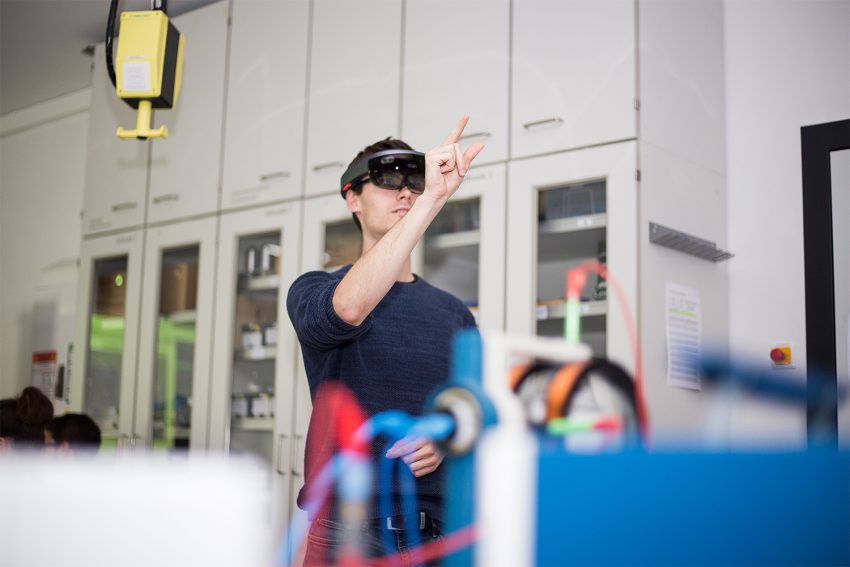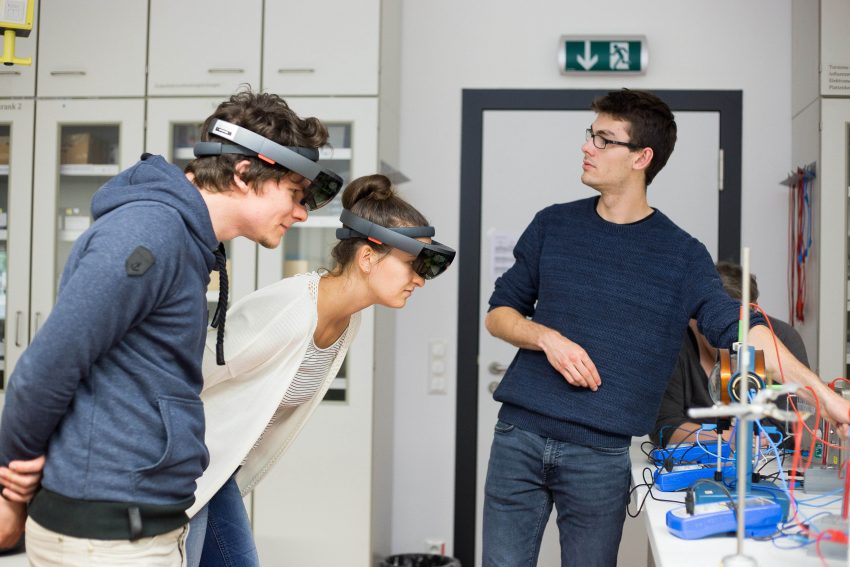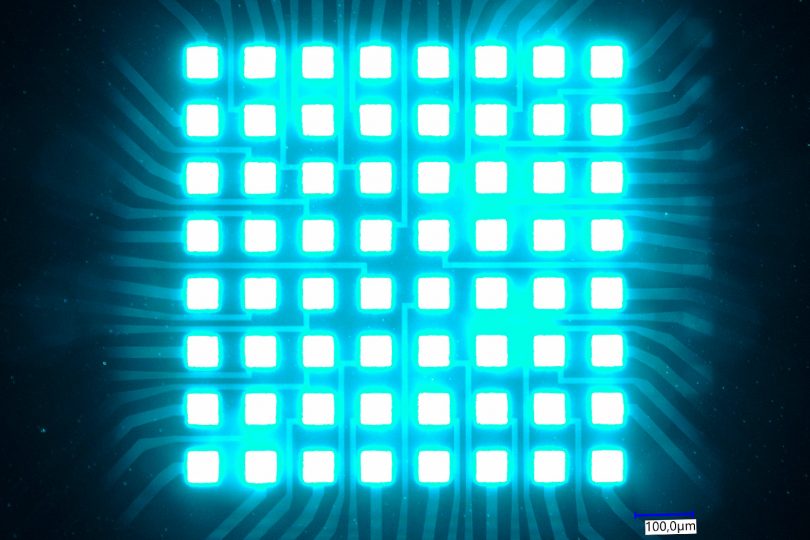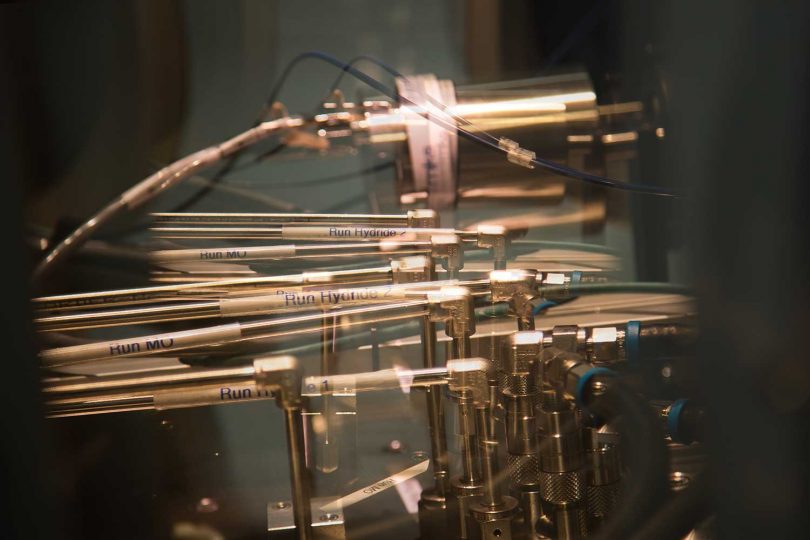Master in Quantum Technologies A degree program at the center of the Quantum Valley Lower Saxony.
The Quantum Valley Lower Saxony (QVLS) is going to build a quantum computer until 2025. Not as a laboratory setup for basic research, but as a working device. This quantum computer is a step into a new age. So that it does not remain with one step, the university studies should also open for the new quantum technologies. Professor Tobias Voß from the Institute of Semiconductor Technology at the Technische Universität Braunschweig explained to our trainee Laurenz Kötter what it takes to make this happen.

In virtual reality, students could learn on quantum computers before they themselves become reality. Picture credits: Daniel Götjen/TU Braunschweig
Mr. Voß, you are the Dean of Studies at the Faculty of Electrical Engineering, Information Technology, Physics at the TU Braunschweig. Are these also the core areas in which experts in quantum technologies should have knowledge?
Yes, and in particular it is about the interfaces of these three areas. The competence for quantum technology and quantum computing currently lies quite clearly in physics. This is where students have so far received the necessary theoretical and mathematical foundations. This is due to the fact that quantum computing has so far been assigned to basic research in physics. However, the major IT companies are showing that a change has already begun. They are already making their first quantum computer prototypes available online so that future users can already apply their ideas to them. The companies want these ideas. They show them who wants commercial quantum computers and what can be done with them. Research and application go hand in hand there.
This is exactly what we will prepare our students for. We want to enable them in electrical engineering and information technology right through to computer science to develop ideas for quantum computers and technologies independently. They should be able to learn about the interfaces to the world of quantum in their disciplines without having to do quantum physics in its entirety. In other words: We want to bring the know-how of physics to a broad audience.
How can this be integrated into the course of study?
We have already successfully integrated the field of “photonics and quantum technology” as a specialization in electrical engineering. The plan is to expand this interface with an independent master’s program: a master’s in quantum technologies with a focus on quantum devices, sensors and information technology, but also quantum computing. All tailored to engineers. Establishing this degree program is quite challenging. This is because engineering education, even in the research-oriented master’s program, is very practice-oriented and the technologies on which the students are to try out are not yet ready for the market.
We believe that now is a good time to start planning this master’s program. After all, these graduates will be greatly demanded as new experts in the upcoming quantum technology research and industry. The first working quantum computer of the Quantum Valley Lower Saxony is a great milestone, but it is far from being the end of the road. We need the right experts for this. As well as our industrial partners, who want to use the results of the Lower Saxony Quantum Alliance commercially. The long-term goal of the new course is that engineers who work on normal computers today will be working with quantum computers as a matter of course in ten years’ time.

Especially the AG Bodensiek of the Institute of Didactics of Natural Sciences is currently testing the application of Virtual Reality in teaching. Picture credits: Daniel Götjen/TU Braunschweig
How will the planned master’s program be implemented in practice – especially when the equipment has not yet been developed but the experts are supposed to be trained in five years?
Above all, we want to make the strength of our network in the Quantum Valley Lower Saxony more accessible to students. Thanks to the closely interwoven cooperation with Leibniz Universität Hannover and the Physikalisch-Technische Bundesanstalt, we can access a broad spectrum of expertise here. What is already happening in teaching at the doctoral level, such as in the NanoMet research training group, will also be used in the new master’s program
In addition, we are working on courses that also address the practical aspect. Conceivable examples are seminars on the quantum dot displays currently coming onto the market or a quantum computer built in virtual reality (VR). At this point, we cooperate a lot with Professor Rainer Müller from the Institute of Didactics of Natural Sciences as a didactic expert for quantum physics.
However, a new course of study is not set up quickly. The concept for the new master’s program should be ready this summer. This is the start of a process that first has to be checked and confirmed by many authorities. If everything goes smoothly, the first students will be able to officially start a master’s degree in quantum technologies in two and a half years. The first graduates would thus be ready when the QVLS quantum computer goes into operation.


